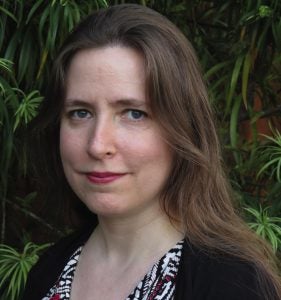
Natalia Caporale, Ph. D.
ncaporale@ucdavis.edu
Lecturer PSOE
188A Briggs Hall
Neurobiology, Physiology and Behavior Department
College of Biological Sciences
University of California Davis
CBS Faculty Webpage
COURSES
NPB 101 Systemic Physiology
RESEARCH INTERESTS
Identifying and Overcoming Barriers to Students’ Success in Science
I aim to identify barriers to the success of minorities and underrepresented students in science majors at UC Davis and develop class interventions and departmental programs to help students overcome these barriers. In particular, I am deeply committed to the success of our transfer students, most of whom are ethnic minorities, first generation or non-traditional students. For this, I hope to establish projects to involve local community colleges and CSUs.
Improving Science Learning in Large Enrollment Courses
It is a reality of our education system that courses are getting larger and larger and educators are faced with the need to modify our teaching to accommodate this new course format. Research in Physics, Chemistry and Biology over the last 30 years have identified various strategies that can increase student engagement, participation and learning in large science classrooms. Yet implementation remains a challenge. As a Faculty in UC Davis, I will be implementing many of these strategies in our classes while collecting evidence of their effectiveness as well as researching the barriers at the student and faculty level that difficult the transition of our courses into to a more active learning, student-centered teaching model.
Conceptual Barriers to Changing People’s Minds about Science
One of the most challenging jobs science educators have is to change student’s minds about their intuitive ideas about how the physical world works. Such intuitive knowledge is a significant barrier to student’s understanding of many fundamental concepts in the sciences. This research project focuses on identifying and documenting the alternative conceptions that students bring into the biology classroom to develop better teaching strategies to help their learning of Biology. In this context, and as a neuroscientist by training, I am very interested in science misconceptions and ways to develop better instructional tools to help students resolve them.
PUBLICATIONS
Thomas A.W.*, Caporale N*, Wu C, Wilbrecht L. (2016). Early maternal separation impacts cognitive flexibility at the age of first independence. Developmental Cognitive Neuroscience 18: 49-56 (*co-first authors)
Vandenberg A., Piekarski, D.J., Caporale N., Perez Munoz F.,WIlbrecht L. Adolescent maturation of inhibitory inputs onto cingulate cortex neurons is cell-type specific and TrkB dependent. Front. Neural. Circuits . 9 (5) 1-10.
Han F*, Caporale N*, Dan Y. (2008). Reverberation of recent visual experience in spontaneous cortical waves. Neuron. Oct 23;60(2):321-7. (*co-first authors)
Dalkara D, Kolstad KD, Caporale N, Visel M, Klimczak RR, Schaffer DV, Flannery JG. (2009). Inner limiting membrane barriers to AAV-mediated retinal transduction from the vitreous. Mol Ther 17(12): 2096-102
Han F*, Caporale N* , Dan Y. (2008). Reverberation of recent visual experience in spontaneous cortical waves. Neuron. Oct 23;60(2):321-7. (*co-first authors)
Caporale N, Dan Y. (2008). Spike timing-dependent plasticity: a Hebbian learning rule. Annu Rev Neurosci. 2008; 31:25-46.
CONFERENCE PROCEEDINGS
